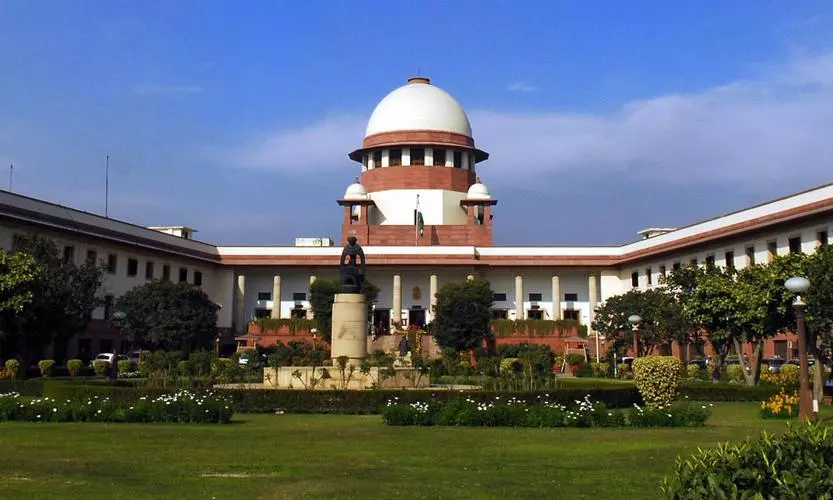
Mining revenues: Dispute over royalty for Centre vs taxes for state
SC is hearing over 80 petitions filed by private mining companies, challenging state governments’ right of levying taxes on mining within their territories

Mining companies on Tuesday (March 5) argued in the Supreme Court that states cannot levy tax on mineral rights as the subject pertains to mineral development on which any legislation that is to be framed is the sole preserve of the Centre. The Supreme Court is hearing a bunch of over 80 petitions filed by various private mining companies, challenging state governments’ right of levying taxes on mining within their territory.
Since the miners pay royalty to the Centre, they say levying of taxes by states puts an extra burden on them. However, the issue has implications for the states as it may seriously impact their revenue-generation capacity and the right over minerals extricated from land under their jurisdiction.
Here's what the case is all about:
Mining and development rights
The issue the Supreme Court is grappling with is the contrarian view that both states and the Centre hold with regard to mining minerals and imposing of taxes by states above the royalty the miners pay to the Centre. While the minerals vest with the states, as they originate from the land within their boundaries, the development of minerals rests with the Union government.
State List vs Union List
In the course of the hearing, held before a nine-member bench headed by Chief Justice of India (CJI) DY Chandrachud, Entry 23 and 50 of List 2 in the State List and Entry 54 of List 1 in the Union List of Constitution came up for discussion.
Entry 50 in the State List pertains to taxes on mining rights which along with Entry 23 of the list – regulation of mines and mineral development – are subject to law made by Parliament as contained in Entry 54 of the Union List.
Entry 50 in the State List states, “Taxes on mineral rights subject to any limitations imposed by Parliament by law relating to mineral development.” Entry 23 of the list states, “Regulation of mines and mineral development subject to the provisions of List I with respect to regulation and development under the control of the Union.”
If interpreted together, although a state can tax mining of minerals and can regulate mines and mineral development, it does not enjoy absolute control over the mineral resources as both are subject to control by the Centre.
How Centre exercises control?
The Centre exercises its right to levy taxes in the form of royalty on mining rights under Entry 54 of List in the Union List, which states, “Regulation of mines and mineral development to the extent to which such regulation and development under the control of the Union is declared by Parliament by law to be expedient in the public interest.”
The Union government exercised its control of the mineral resources of the country by enacting the Mines and Minerals (Development and Regulation) Act in 1957 as envisioned in Entry 54 of the List 1.
What’s Centre’s contention?
Arguing that it was never contemplated under the Constitution, the Centre has submitted that states cannot be allowed to tax mining. It argues that the same will unfairly enrich states which are rich in minerals as taxing will make minerals dearer. Minerals, it argues, are key to development of core industries.
Noted lawyer Harish Salve, representing Eastern Zone Mining Association, concurred with the Centre’s argument. “While minerals vest in states, mineral development is entirely with the Union,” he said. “If Entry 54 makes a declaration that development and regulation of minerals rests with Centre, the state’s power under Entry 23 or any other entry related to minerals stands denuded,” he added.
Apart from CJI Chandrachud, justices Hrishikesh Roy, AS Oka, BV Nagarathna, JB Pardiwala, Manoj Misra, Ujjal Bhuyan, Satish Chandra Sharma and Augustine George Masih are part of the bench.

